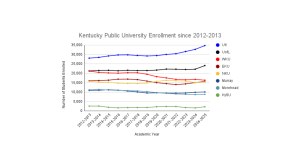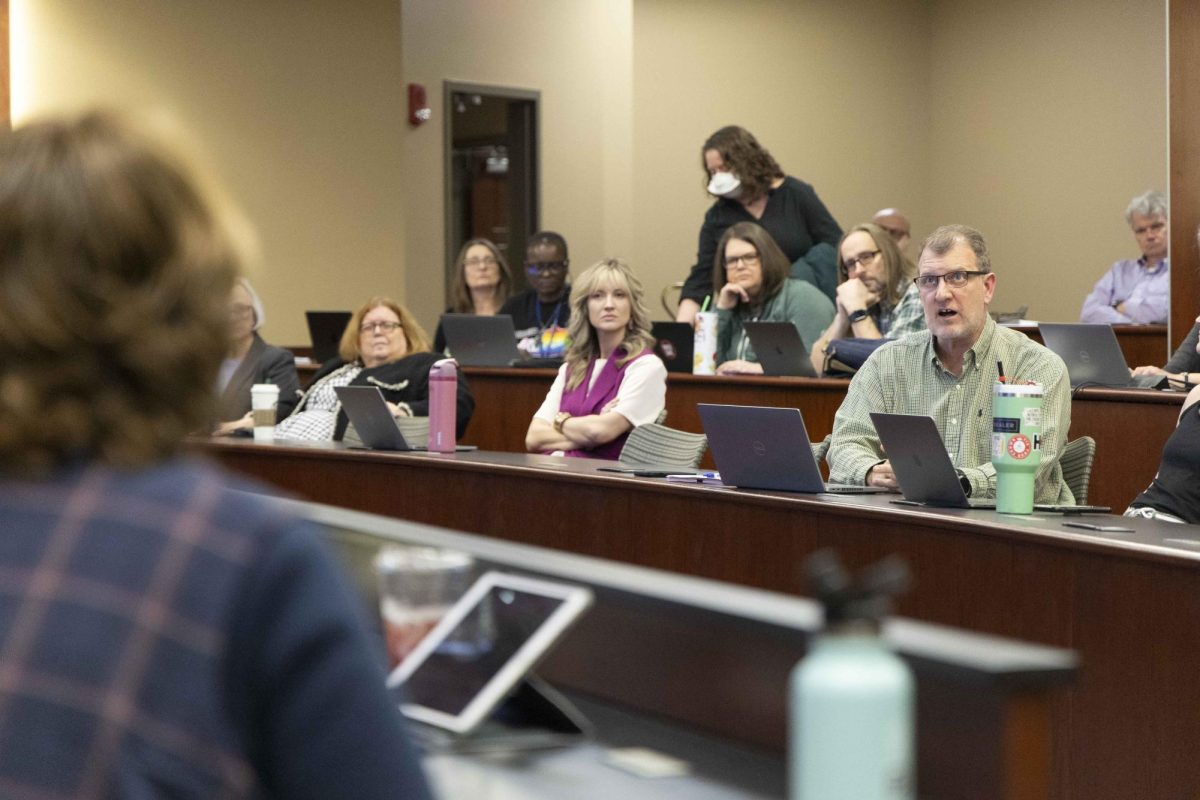Free community college proposal could affect WKU
January 27, 2015
President Barack Obama outlined many proposals during his State of the Union address on Jan. 20, but one of the most prominent was the idea to make the first two years of community college free.
“America thrived in the 20th century because we made high school free,” he said.
Obama said other countries have caught on, and America needs to take more steps to reward knowledge in order to flourish in a modern economy.
The proposal, called America’s College Promise, would waive tuition for the first two years of community college, provided that students maintain a 2.5 grade point average, attend school at least half-time and “make steady progress toward completing their program” according to whitehouse.gov.
By the end of the decade, two-thirds of all job openings will require some college education, but many Americans can’t go to college because of steep prices, according to Obama.
“It’s not fair to them, and it’s sure not smart for our future,” he said.
Obama indirectly cited the Tennessee Promise, a program that gives high school graduates free tuition at the state’s two-year community colleges or technical schools. Starting with the class of 2015, the Tennessee Promise would serve as an example for making free community college nationwide.
Brian Meredith, chief enrollment and graduation officer, said he doesn’t expect much change in enrollment if the proposal were to pass due WKU’s own assistance.
The Joint Admissions program allows students to enroll in a specific community college and WKU simultaneously.
“Actually, I think in the long term, it will be a good thing for everybody,” Meredith said.
Students participating in the Joint Admissions program can transfer to WKU once they have completed their degree at the community college. Students are eligible for transfer scholarships and receive academic advising.
WKU has a Joint Admissions agreement with nine community colleges: seven that are part of the Kentucky Community and Technical College System, one in Gallatin, Tennessee and one in Evansville.
There were 513 students who transferred from a KCTCS school enrolled at WKU last fall semester according to an enrollment report.
President Gary Ransdell was cautious to offer an explicit opinion due to the proposal being relatively new, but said there was a possibility that the proposal could impact WKU.
“It could change the demographics of our student population in ways that could be pretty harmful to a lot of public institutions,” he said.
Ransdell said he wasn’t optimistic that the proposal would pass Congress, citing cost concerns.
“It’s awfully expensive,” he said. “Somebody’s got to pay for it.”
If passed, the federal government would pay for 75 percent of the cost while states participating in the program will pay for the other 25 percent. White House officials estimate it would serve nine million people and cost nearly $60 billion over 10 years.
Ransdell added Kentucky, and the nation’s economy as a whole will be driven by baccalaureate and graduate degrees in “relevant” disciplines.
“I, for one, am a bit dubious that that concept (free community college) has merit, especially if it comes at the expense of baccalaureate and graduate degrees,” he said.
















